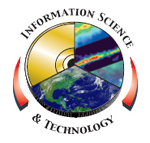
Please Note: The content on this page is not maintained after the colloquium event is completed. As such, some links may no longer be functional.
The Operation of a Distributed Information System: The Planetary Data System Example
Wednesday, October 1, 2003
Building 3 Auditorium - 3:30PM
(Refreshments at 3:00 PM)
Dr. Raymond Walker will talk about The Operation of a Distributed Information System: The Planetary Data System Example. The successful operation of a scientific information system requires the close cooperation of research scientists, computer scientists and science managers. Twenty years ago the Committee on Data Management and Computation (CODMAC) of the National Research Council set out a set of principles for successful scientific data management [Bernstein et al. 1982]. They found that successful data management required active scientific involvement in all of the elements of the data chain. They argued that data system planning must start during the design phase of a space mission and continue throughout the mission. They further argued that funding for data activities must be shielded from cost overruns. The Planetary Data System (PDS) was the first NASA attempt to apply the CODMAC principles to space data. No single university or laboratory has the expertise necessary to understand all of the data from all of the instruments involved in space science so PDS was a distributed system from the start. PDS is organized by the scientific disciplines that make up solar system exploration. PDS developed the concept of data curation in which PDS scientists, mission scientists and data management experts work together to assure both current science users and future users can carry out scientific studies with the data. PDS developed metadata standards to thoroughly document the planetary data so they will be useful after the mission ends. Following the example of professional journals PDS developed a peer review process to help assure high data quality. Finally PDS developed online systems to enable scientists to access the data. The data are available either online or on hard media. Planetary science is evolving. Studies increasingly require data that cross disciplinary boundaries. PDS has developed PDS-D an XML based system to facilitate cross disciplinary research. In the future data volumes will increase greatly. Missions now return terabytes of data but in the future missions will return pedabytes! NASA's data systems must address this challenge.
From 1973 to 1977 Dr. Walker was on the research staff of the School of Physics and Astronomy of the University of Minnesota, after which time he joined the Institute of Geophysics and Planetary Physics at UCLA. He is now Professor in Residence in IGPP and the Department of Earth and Space Science. He has studied both particle and fields observations from the Earth, Jupiter, Saturn and Uranus and is a co-investigator for the magnetometer on the Galileo mission to Jupiter. Walker also has worked on magnetohydrodynamic simulations of reconnection and has worked on global magnetohydrodynamic simulations of the interaction of the solar wind with planetary magnetospheres. Special emphasis in this work has been on the comparison of simulations and observations. Recently he has worked on applying computer data management techniques to spacecraft and to simulation derived "data". He is author of over 100 papers in professional journals. He is currently the Principal Investigator for the Planetary Plasma Interactions Node of the Planetary Data System (PDS) and served PDS as Project Scientist.
IS&T Colloquium Committee Host: Cynthia Cheung

